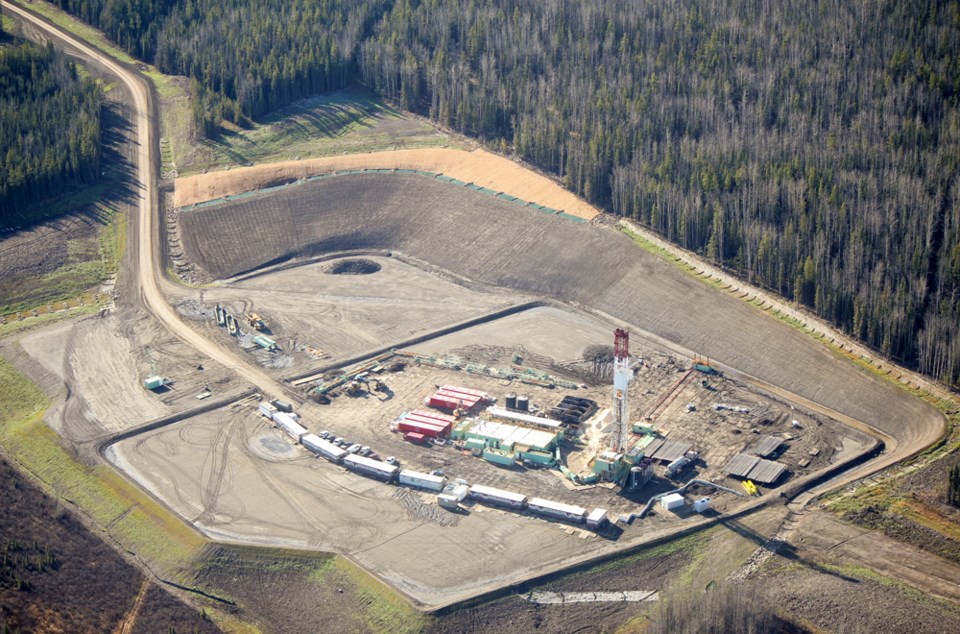A majority of British Columbians seem to a favour a tax-to-the-max regime for B.C.'s oil and gas industry – an approach that, if overdone, could reverse the trend that has seen more investment on the B.C. side of the Montney formation than the Alberta side.
The B.C. government plans to revise how it taxes the oil and gas industry in B.C. The current tax credit and royalty regime has been criticized, notably by the Green Party, as a subsidy that gives the industry a free ride, with the government foregoing too much royalty revenue.
Last year, the B.C. government appointed Nancy Olewiler, a public policy professor at Simon Fraser University, and Jennifer Winter, associate professor of economics and scientific director of the energy and environmental policy research at the University of Calgary, to assess B.C. oil and gas credits to provide some guidance for a review of B.C. oil and gas royalties and credits.
In their assessment, they suggested moving to a system more aligned with Alberta’s. Based on the Olewiler-Winter report, the B.C. government issued a discussion paper and began a public engagement. On Wednesday, the results of its public engagement were released.
"Overall, the general public and various non-profit organizations (academics, NGOs, Indigenous organizations) are in favour of using an update to the royalty regime as a tool for the provincial government to pursue its net-zero emissions goals and the strategic priorities laid out in the Roadmap to 2030 plan," a report on the public engagement states.
Generally, it found strong support for “a flat royalty rate with no capital recovery mechanism” and “high royalty rates that reflect the social, environmental, and health impacts of oil and gas extraction.”
That's another way of saying "nix the deep well credits."
It also found support for “high additional fees for the use of water in operations that leave the water contaminated, such as fracking,” and fines for methane leaks.
Of the respondents, 37 per cent were from the Lower Mainland, 36% from Vancouver Island and just 5 per cent from the region where most natural gas is produced in B.C. -- the northeast.
Of all the tax breaks offered to oil and gas producers, the one that has attracted the most criticism is the deep well credit, which was developed back when deep horizontal drilling was still an "unconventional," risky and high cost approach. The credit helps defray the higher cost of deep well drilling.
Deep, horizontal well drilling is now the predominant approach to natural gas well drilling.
The amount the government takes in annually in natural gas royalties has been declining for more than a decade, despite the fact B.C. has seen a significant increase in natural gas production, and the deep well credits have been blamed for the government not receiving its fair share of royalty revenue.
Low natural gas prices in North America for the past decade are also at least partly to blame for lower natural gas royalties. Alberta has also seen natural gas royalties decline over the same period.
Both Alberta and B.C. are likely to see higher revenue from natural gas royalties in their next provincial budgets, however, as natural gas prices have soared.
In their review, Olewiler and Winter found that, as of March 2021, accumulated deep well credits total $7.325 billion, only half of which -- $3.56 billion – had been drawn down. The credits reduce the royalties the B.C. government receives by 3% to 6%, they estimated.
"The message is clear: What may have worked 30 years ago does not work today and a new approach is essential for our future," Bruce Ralston, minister of Energy, Mines and Low Carbon Innovation, said in a press release.
The B.C. government plans to release its new policies for oil and gas royalties and credits this spring.
Thanks to its natural gas liquids and nascent LNG industry, B.C. has seen more and more investments flowing here from Alberta oil and gas companies. The Canadian Energy Regulator predicts B.C. will surpass Alberta as Canada's natural gas producer by 2028.
But the industry is cautioning against putting B.C. at a cost disadvantage to other natural gas producing regions.
“Natural gas is expected to be one of the fastest growing sources of energy globally for decades to come as countries look to reduce their reliance on coal," said Geoff Morrison,manager for British Columbia with the Canadian Association of Petroleum Producers (CAPP).
"British Columbia produces some of the cleanest and lowest emission natural gas on the planet. B.C. needs to ensure it does not get left behind in the global push to grow natural gas supply and develop a competitive environment that attracts investment here rather than to countries that do not match our high environmental standards."
"Increasing royalty costs on producers might decrease gas production, thus lowering BC's total emissions, but it's not a very effective policy solution to climate change, which is a global problem," said Stewart Muir, executive director of Resource Works.
"The worst case scenario here is that B.C. both loses an economically productive industry and the reduced emissions in B.C. are made up by our competitors around the world. While demand for natural gas exists, I would rather that the B.C. government focus on empowering responsible, ethical Canadian producers to innovate further emissions reductions."



